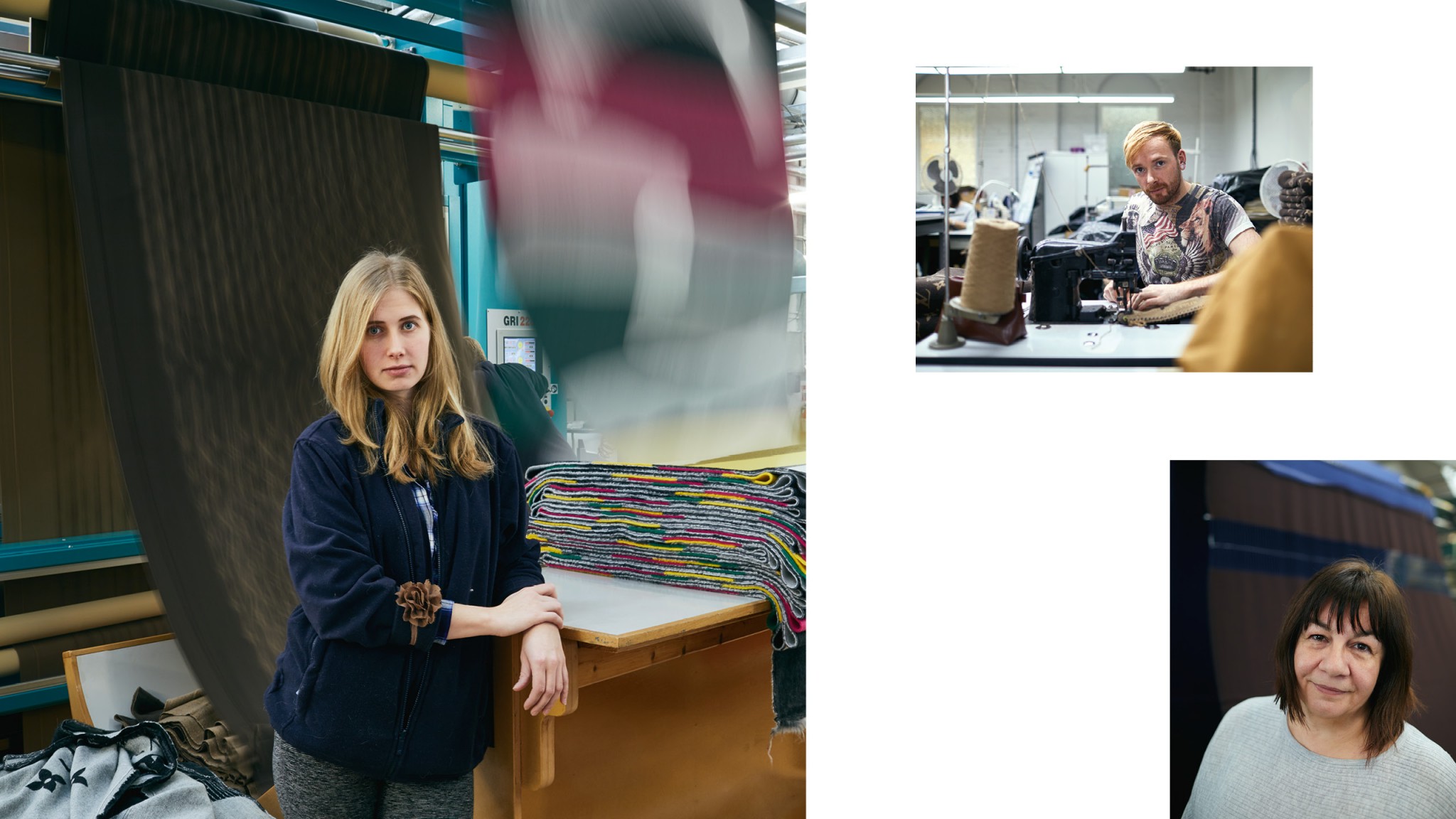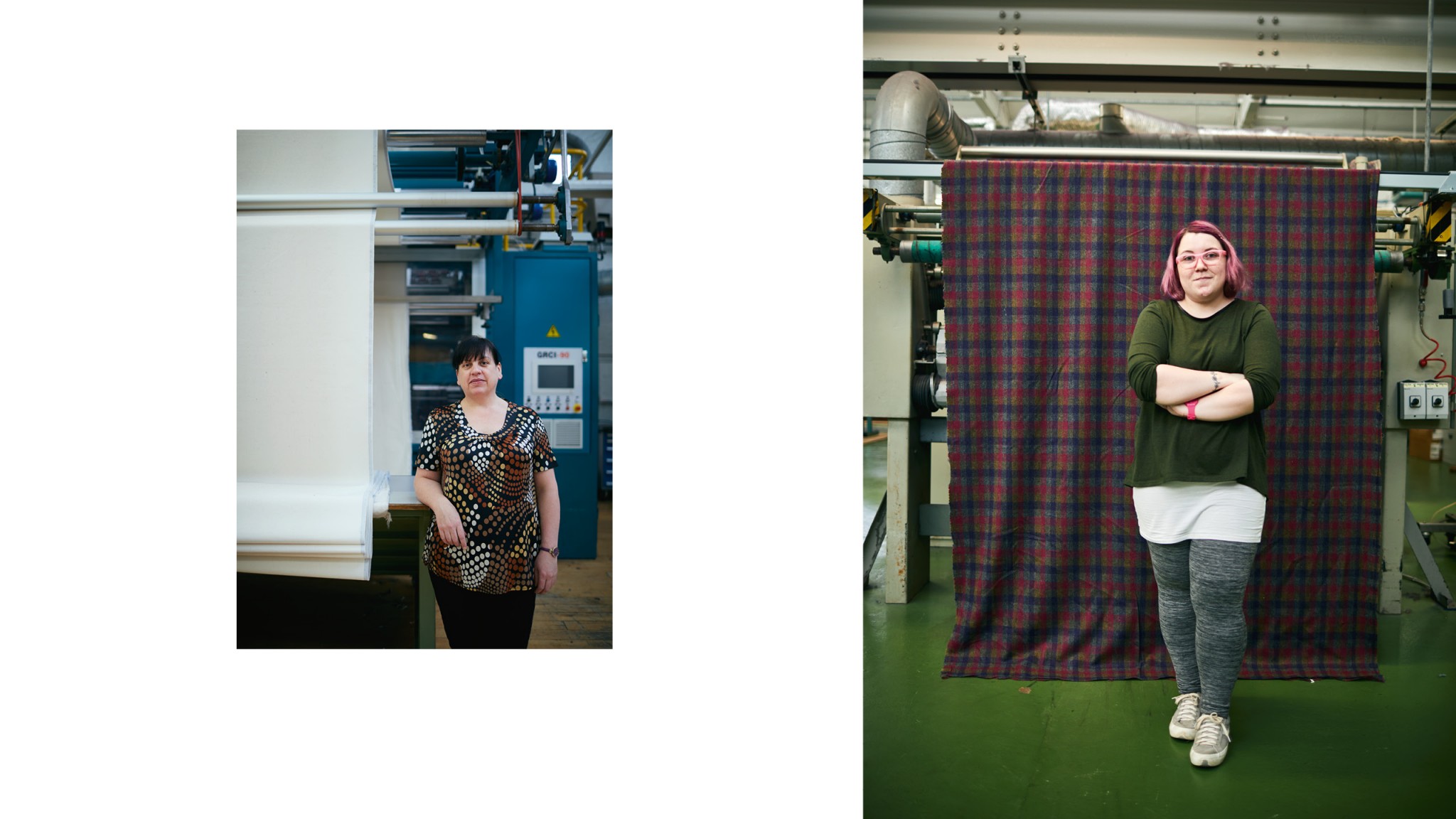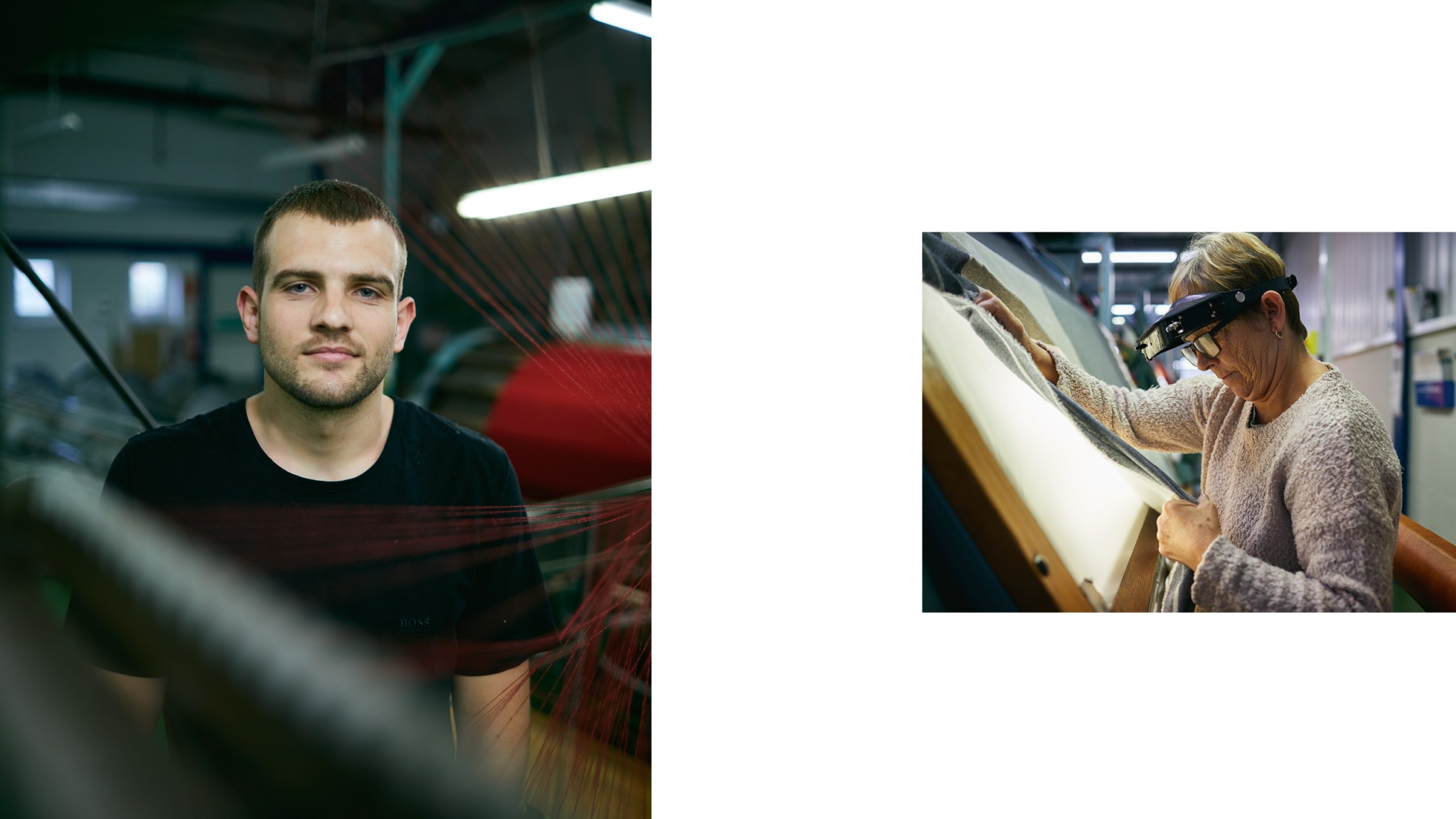Journal 15 March 2019
A visit to Scottish scarf manufacturer Alex Begg’s factory
Renowned scarf manufacturer Alex Begg has joined forces with Dumfries House to breathe new life into the local textile industry
It’s a day like any other at the Alex Begg factory. Established in 1866 and sitting at its current location near the River Ayr since 1902, the makers of scarves, throws and soft furnishings of cashmere and other fine wools is one of the few remaining textile manufacturers in the once industrialised Scottish county of Ayrshire.
With approximately 170 employees working on products for international luxury brands, smaller labels, and the company’s own premium line, every step in the process is about attention to detail. The industrial looms whirr as they warp and weft ethical, sustainable yarns together. The final swathes are checked, mended and tended to as they become soft, silken pieces.

Behind the giant machines are the people who work at Alex Begg, ensuring every item shipped from the factory is of the highest possible standard. “We’re called ‘the greasy menders’ because the cloth is still dirty when it comes to us,” says Margaret Parry, who has worked at Alex Begg for 46 years.
Parry’s is one of the many stations for checking and fixing. After a woven item has come off the loom, it’s carefully looked over. “We feel the fabric for knots,” says Parry. “If it’s a thick material you cut the knot off, if it’s a fine material you open up the knot and darn it.”
After almost five decades of work, Parry’s eyes and hands are as finely honed as the fabric she tends to, and she sees that for companies like Alex Begg to survive, hers and similar skills need to be passed on. “There are a lot of older people who are due to retire – they need more young people in order to continue.”
This is where the Textile Training Centre at Dumfries House comes in. Opened in 2018, the converted saw mill is home to Future Textiles, an umbrella initiative for courses including one for learning industrial sewing skills, which helps prepare people for working in the textile industry. “The training programme gives candidates a basic knowledge and understanding of sewing and working in a production environment using industrial machinery,” explains Laura Gibson, lead tutor at the centre. “Each individual will build a skillset and work towards future employment within the local textile industry,” she says.

“It’s really important for Dumfries House to run programmes like this as Scotland has found a dip within the apparel sector with regards to sewing skills,” says Gibson. “The local community benefits as trainees are gaining skills that can help them set up a business or access local industries and job opportunities.”
Working with the Job Centre, as well as local industry partners such as Alex Begg, the courses are geared towards a cross-section of the community, from younger people looking for their first break to older residents who want to get back into the workforce. “The courses also help with people who are unemployed or who suffer from health issues,” says Gibson. “There is support from the Dumfries House tutors and our health and well-being group.”
When Graeme Bone, from the nearby village of Auchinleck, joined the textile training course, he had just finished studying fashion and design at university. After a work placement with Alex Begg he was offered a longer-term job. Bone, who hopes to work in bespoke tailoring in the future, sees this as a hugely beneficial stepping stone.“The skills I learned on the course at Dumfries House definitely help on the job,” he says. “It’s made me focus a lot more on accuracy. If I do really well at something, I want to do better. I’m always in competition with myself.”
Maria Wade is another of the six alumni of the Sewing Skills for Industry Course currently working at Alex Begg. Having attended the weekly sewing bee at Dumfries House for three years, the opportunity for training came at just the right time. “My personal circumstances changed and I needed to think about what to do next,” says Wade. “Then the course came up. At first I thought, I’ll be rubbish, I won’t sew straight. But once I got the feel for the industrial sewing machine, I was away. Then I came here for work experience, and when they offered me a job I was almost in tears because it was just what I needed.”
“The training centre is a great way for businesses to find the right candidates who have gained valuable skills on our programmes and who are seeking employment in the local area,” says Ashleigh Douglas, project coordinator for Future Textiles. “Having respected companies such as Alex Begg on board is hugely valuable to the programme.”

Alex Begg production manager Lorna Dempsey has been working for the company for 18 years, is an active industry advisor and speaker for Future Textiles, and was a member of the steering group for the training centre. “We helped guide the team at Dumfries House in terms of what we needed from placement staff,” she explains. “The trainees from Dumfries House can work anywhere in our factory because they know so much about textiles – they have learned sewing skills, about warp and weft, and other important things. That’s amazing knowledge to bring here.”
“We see significant changes in people by the end of the course,” says Gibson. “Including boosts to their confidence, skills and abilities – plus brighter and happier personalities. People get inspired.”
Ultimately the course, the placements with local companies such as Alex Begg, and the possibility of employment are as much about high standards as the products that are the end result of this virtuous circle. Providing access to quality training and work experience is leading to quality job opportunities. So perhaps it’s no wonder this particular business has managed to survive for so long and looks set to thrive in the future – though Margaret Parry does marvel at it all. “It’s surprising that a factory that makes scarves has outlived so many other factories,” she says. “After 46 years of making scarves, I wonder, surely all of us have one by now?”


